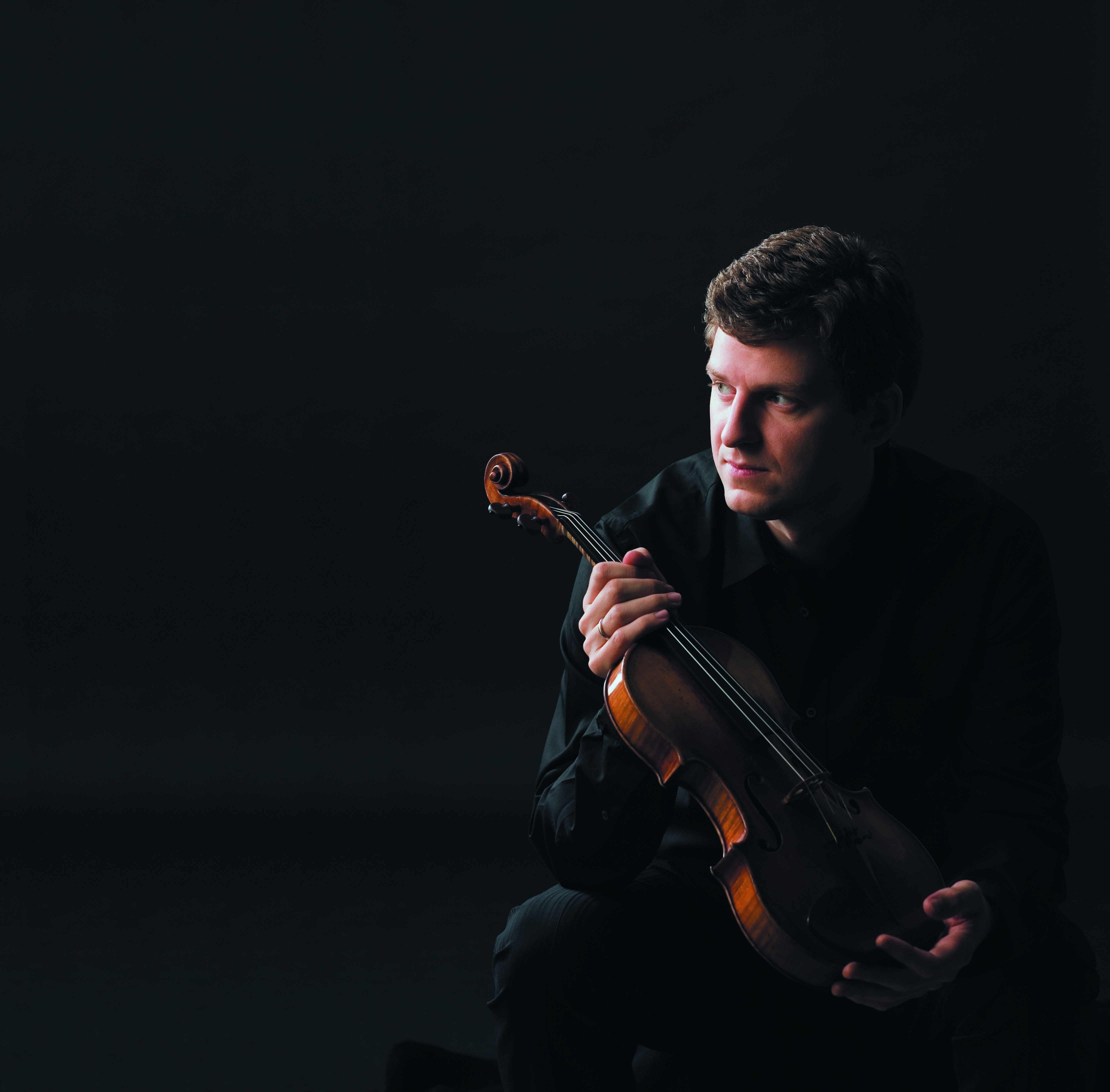Violinist Ehnes strikes sparks in a lively lakefront program of English music

Maybe it’s the pastoral element, the rich vein of reflective nostalgia or a combination of the two, but there’s something about English music that always seems eminently well suited to outdoor performances.
The Grant Park Music Festival served up the al fresco music-making a la anglais Wednesday night with a program spotlighted by the return of violinist James Ehnes.
After Carlos Kalmar and the orchestra set the stage with a mellow rendering of Vaughan Williams’ uber-English Fantasia on Greensleeves, it was Ehnes’ turn in the spotlight with the Violin Concerto of William Walton.
Jascha Heifetz had many works written for him but of all Heifetz’s commissions, only Walton’s Violin Concerto has survived in the regular repertoire. Even then it took awhile for the work to gather popularity; Walton himself darkly surmised that Heifetz’s constant demands for more impossible difficulties in the score was in part designed to prevent other violinists from attempting to play it.
No such fears be held with James Ehnes. The Canadian violinist possesses a commanding technical arsenal that allows him to tackle even the most tortuous difficulties, of which there are plenty in Walton’s concerto, not least the Presto capriccioso’s two-in-a-bar alternating harmonics and pizzicati.
But sterling technique only gets you so far in this music, and Ehnes also possesses the requisite poetic sensibility, with a blend of sweetness and sinew well suited to Walton’s restless romanticism. The rhapsodic opening movement has just the right wistful sense, Ehnes’ gleaming tone and laser-like focus reminiscent of the work’s dedicatee, without the emotional chill.
Ehnes blazed through the myriad hurdles of the Italianate middle movement with dazzling bravura and technique to burn. The finale’s main theme is of an almost Korngoldian sumptuousness, yet was rendered with heartfelt lyricism without oversugaring the music. The reprise of the preceding themes and stately approach to the accompanied cadenza may have sacrificed some forward momentum, yet the coda had the requisite fiery payoff. Kalmar was a committed partner throughout and his players provided glove-like support in this belated Grant Park premiere.
If the Grant Park Orchestra provided full-tilt support to their guest in the concerto, under Kalmar’s idiomatic direction, the musicians shone both individually and collectively in Elgar’s Enigma Variations.
Elgar’s affectionate musical portraits of his wife and several close friends remains one of the freshest, wittiest, and most original works in the repertoire. Kalmar is clearly a dedicated Elgarian, palpable in his well chosen tempos and pacing. The conductor and colleagues delivered an engaging and vividly characterized performance, with notable etchings of a volatile, blustery Troyte, deftly painting the quirky exuberance of G.R.S (and his bulldog, Dan), as surely as the reflective nature of the cellist, B.G.N. Only the fleet tempo for Dorabella seemed too swift to allow the variation’s gentle charm to register, not helped by a jarring lapse in string intonation.
Otherwise the playing was first-class throughout with several of the Grant Park principals making the most of their solo opportunities. Kalmar rose to the challenge of Nimrod superbly, with a flowing, molded rendering, climax unerringly placed with the requisite nobilmente. The performance was rounded off with a brassy and strongly projected rendition of Elgar’s own variation, his musical self-portrait thrown off with vitality and confidence. The Grant Park orchestra has been playing well this summer, but the brass has been especially impressive, lending gleam and excitement to every performance.
Posted in Performances


